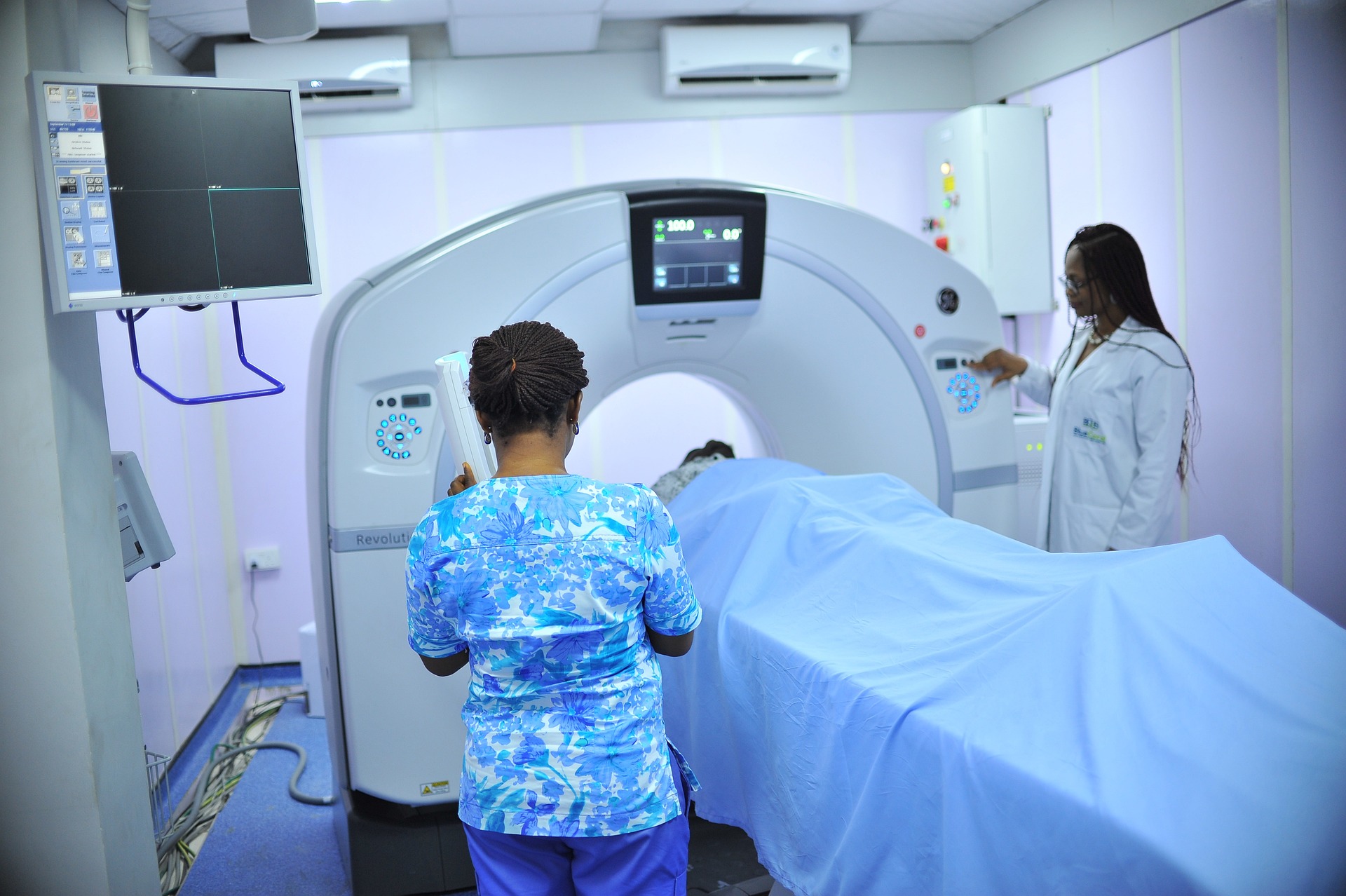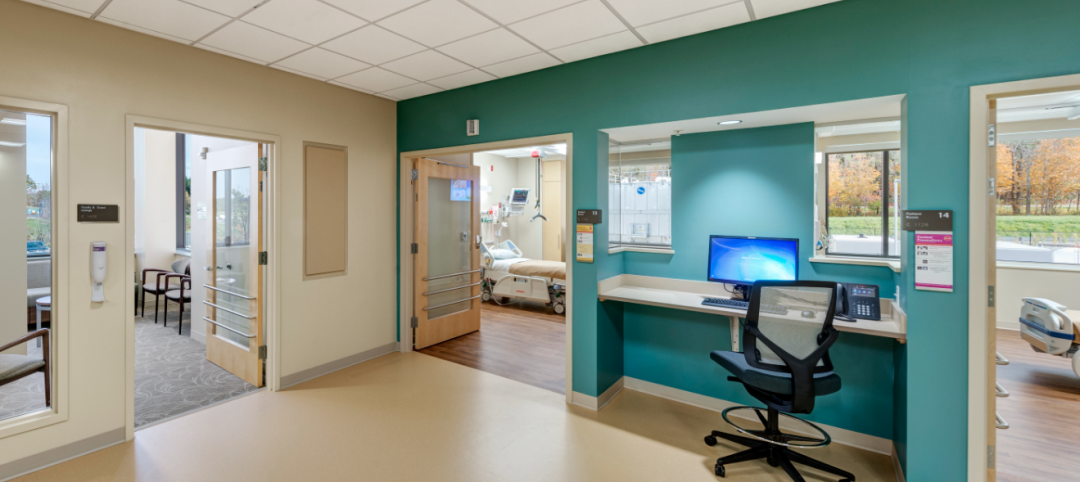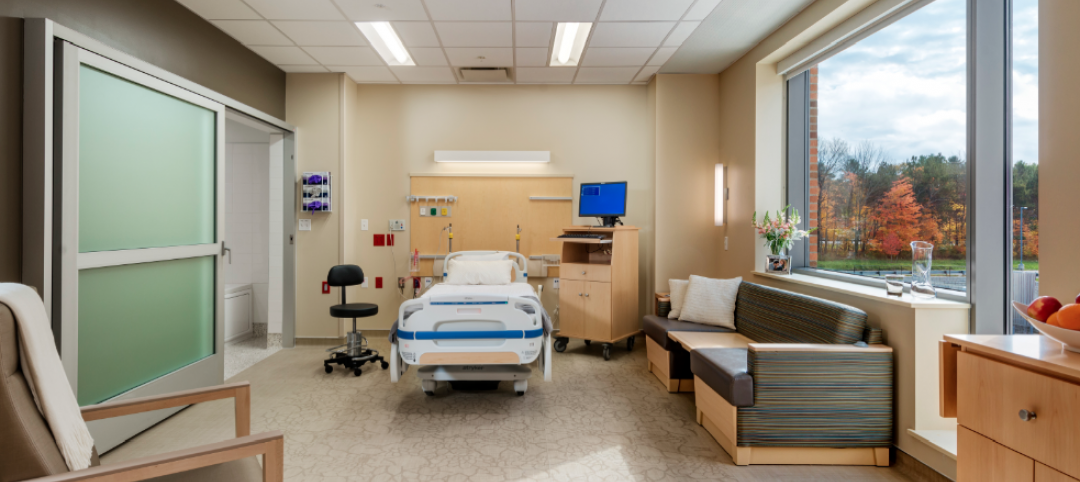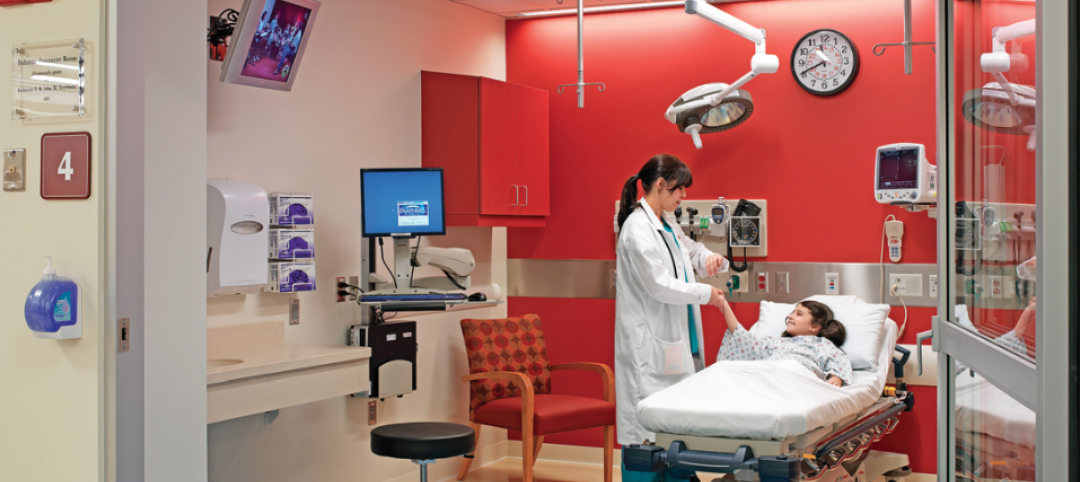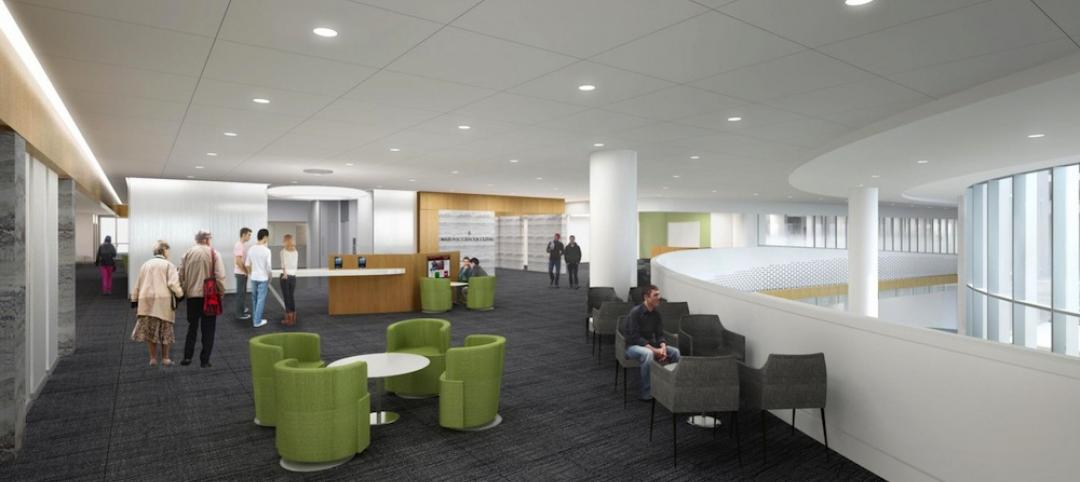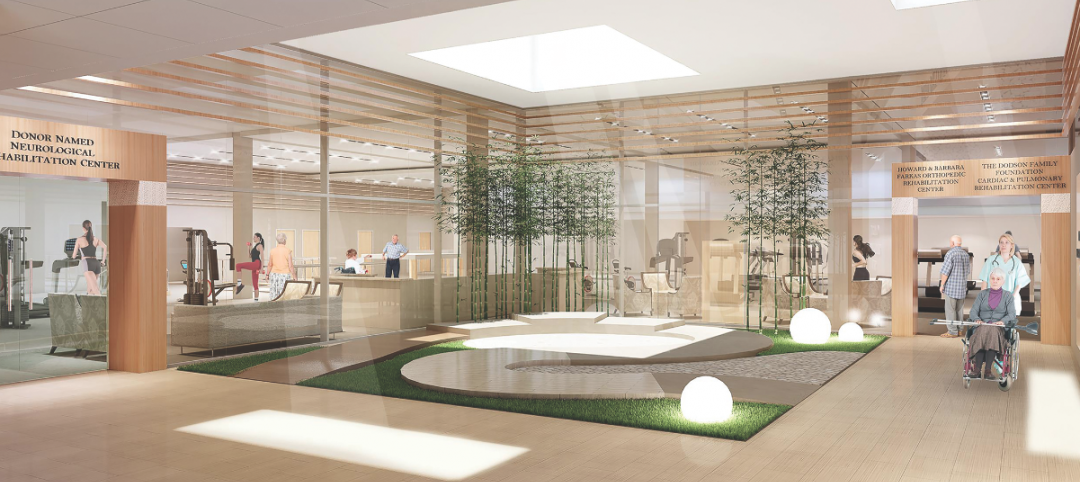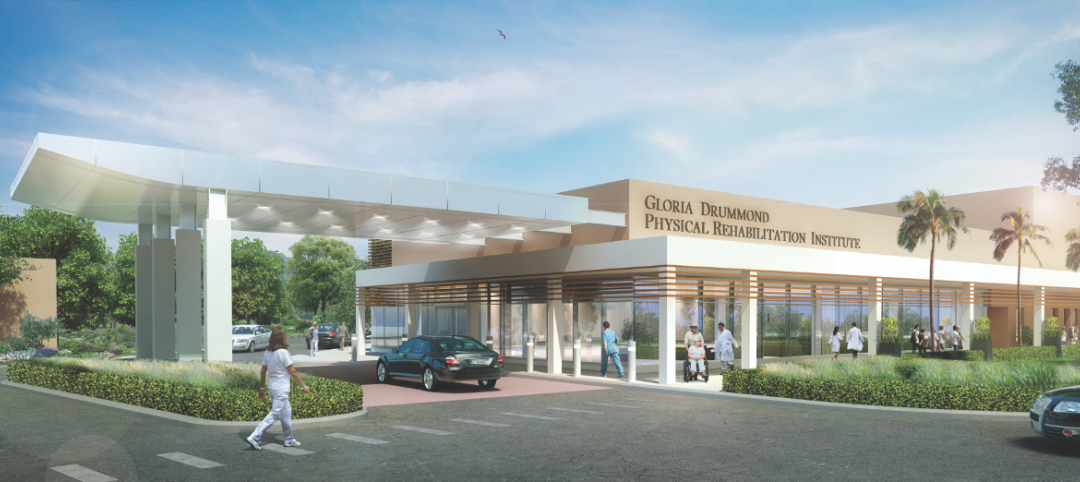This month marks the launch of BD+C’s inaugural Healthcare Annual Report. The second in an ongoing series of “state of the state” building sector reports—the 2023 Multifamily Annual Report published last October—the 2024 Healthcare Annual Report features more than 60 pages of trends, innovations, opportunities, and challenges for the U.S. healthcare construction sector.
Here is a sneak peek of the takeaways and observations shared in the report:
- Even with the rise of outpatient and specialty facilities, mega-hospital projects are not going away. Experts say several factors are at play, including the preference for private patient rooms, industry consolidation, increased care services, population shifts, and inflation. “A billion dollars doesn’t go as far as it used to,” said one expert.
- Patient communication goes high-tech. Interactive patient care systems bring the promise of improved patient communication, increased efficiencies in operations, and greater data collection. One GC said many of its healthcare clients are “aggressively pursuing implementing these new technologies.” However, first cost concerns and IT integration issues can pose obstacles to implementations.
- Trauma-informed design is not just for mental health facilities. TiD was mentioned by several healthcare experts, and not just for behavioral/mental health spaces. Urgent care centers, even entire health campuses, can benefit from TiD approaches like biophilia, daylight, art, protective spaces, and rooms and areas that feel safe and separated.
- Health facilities as destinations? Posh, daylit waiting and exam rooms, higher-end dining options, outdoor eating and respite spaces, specialized spas, wellness gardens, walking paths. These are just some of the advanced design features and amenities that are becoming commonplace in healthcare environments as health systems work to attract healthcare consumers.
- Hospitals make plans for behavioral and mental health. Health systems are getting creative to safely provide care for patients who are dealing with severe mental/behavioral health issues. Design strategies include secure entry points, fortified building materials like impact-resistant drywall and safety glass, and exam rooms that can quickly flex to behavioral health patient use. For instance, one project features hidden garage doors in the ceiling of flexible patient rooms that come down and cover medical gasses in the headwall.
Download the report at: BDCnetwork.com/2024-Healthcare-Annual.
Related Stories
Healthcare Facilities | Sep 11, 2015
Health Product Declaration Collaborative releases updated HPD Open Standard – Version 2.0
Advances transparent disclosure of building product contents
Healthcare Facilities | Aug 28, 2015
Hospital construction/renovation guidelines promote sound control
The newly revised guidelines from the Facilities Guidelines Institute touch on six factors that affect a hospital’s soundscape.
Healthcare Facilities | Aug 28, 2015
7 (more) steps toward a quieter hospital
Every hospital has its own “culture” of loudness and quiet. Jacobs’ Chris Kay offers steps to a therapeutic auditory environment.
Healthcare Facilities | Aug 28, 2015
Shhh!!! 6 ways to keep the noise down in new and existing hospitals
There’s a ‘decibel war’ going on in the nation’s hospitals. Progressive Building Teams are leading the charge to give patients quieter healing environments.
Mixed-Use | Aug 26, 2015
Innovation districts + tech clusters: How the ‘open innovation’ era is revitalizing urban cores
In the race for highly coveted tech companies and startups, cities, institutions, and developers are teaming to form innovation hot pockets.
Healthcare Facilities | Aug 19, 2015
5 brand-building strategies in the outpatient environment
No longer coasting off of reputation, leading organizations are using new ambulatory care centers to re-brand for the future of healthcare, writes CannonDesign's Jocelyn Stroupe.
Healthcare Facilities | Aug 18, 2015
Transforming the patient-clinician experience in retail healthcare: 5 'flips' to consider
Flip the Clinic is a Robert Wood Johnson Foundation project invented to transform the patient-clinician experience. In their language, “flips” are actionable ideas for change, writes Gensler's Tama Duffy Day.
Giants 400 | Aug 6, 2015
GIANTS 300 REPORT: Top 75 Healthcare Construction Firms
Turner, McCarthy, and Skanska top Building Design+Construction's 2015 ranking of the largest healthcare contractors and construction management firms in the U.S.
Giants 400 | Aug 6, 2015
GIANTS 300 REPORT: Top 80 Healthcare Engineering Firms
AECOM, Jacobs, and Burns & McDonnell top Building Design+Construction's 2015 ranking of the largest healthcare engineering and engineering/architecture firms in the U.S.
Giants 400 | Aug 6, 2015
GIANTS 300 REPORT: Top 115 Healthcare Architecture Firms
HDR, Stantec, and Perkins+Will top Building Design+Construction's 2015 ranking of the largest healthcare architecture and architecture/engineering firms in the U.S.


